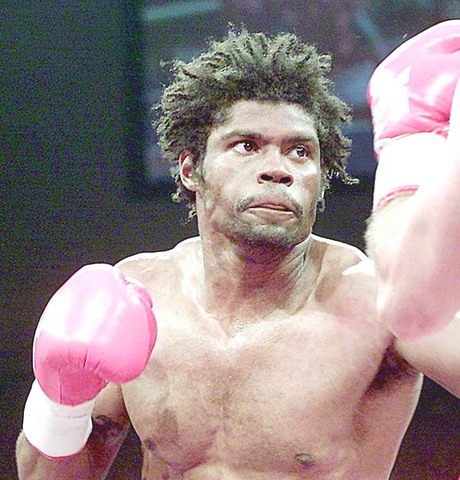James Butler, a boxer who fought under the nickname "The Harlem Hammer," pleaded guilty to voluntary manslaughter and arson Monday in the 2004 death of a freelance sports writer.
Butler will be sentenced to 29 years, four months in prison by California state court Judge Michael Pastor on April 5, according to Deputy Public Defender Jack Keenan.
The 33-year-old fighter entered his plea as jury selection was set to begin in his trial for the killing of Sam Kellerman, who was the 29-year-old brother of boxing expert Max Kellerman, a radio show host in New York.

PHOTO: AP
"I think it's a fair resolution of the case," Keenan said. "He's always been sorry for what he did, and in the end he thought of Sam Kellerman as a friend."
Butler faced about 34 years in prison had he gone to trial and been convicted of murder, Keenan said. The original count of murder was dismissed against the former USBA super middleweight champion.
A motive for the killing has not been revealed by prosecutors, although it could be revealed at Butler's sentencing, said Jane Robison, a spokeswoman for the district attorney's office.
Kellerman's body was found in his Hollywood apartment on Oct. 17, 2004, although authorities believe he had been killed five days earlier.
He had been bludgeoned around the head about 30 times while sitting at his desktop computer, police said. A hammer was found near Kellerman's body, his car was missing and his apartment was set on fire, police said.
Sam Kellerman was a freelance writer who covered pro boxing. He and Butler were friends and the boxer had been staying at Kellerman's apartment since late September, police said.
Butler has a pro record of 20-5, with 12 wins by knockout. He is best known for striking opponent Richard Grant with a blindside punch in November 2001 after losing a charity bout in New York.
Butler has been in custody since his arrest three days after the Kellerman killing.

North Korea’s FIFA Under-17 Women’s World Cup-winning team on Saturday received a heroes’ welcome back in the capital, Pyongyang, with hundreds of people on the streets to celebrate their success. They had defeated Spain on penalties after a 1-1 draw in the U17 World Cup final in the Dominican Republic on Nov. 3. It was the second global title in two months for secretive North Korea — largely closed off to the outside world; they also lifted the FIFA U20 Women’s World Cup in September. Officials and players’ families gathered at Pyongyang International Airport to wave flowers and North Korea flags as the

Taiwan’s top table tennis player Lin Yun-ju made his debut in the US professional table tennis scene by taking on a new role as a team’s co-owner. On Wednesday, Major League Table Tennis (MLTT), founded in September last year, announced on its official Web site that Lin had become part of the ownership group of the Princeton Revolution, one of the league’s eight teams. MLTT chief executive officer Flint Lane described Lin’s investment as “another great milestone for table tennis in America,” saying that the league’s “commitment to growth and innovation is drawing attention from the best in the sport, and we’re

Coco Gauff of the US on Friday defeated top-ranked Aryna Sabalenka 7-6 (7/4), 6-3 to set up a showdown with Olympic champion Zheng Qinwen in the final of the WTA Finals, while in the doubles, Taiwan’s Chan Hao-ching was eliminated. Gauff generated six break points to Belarusian Sabalenka’s four and built on early momentum in the opening set’s tiebreak that she carried through to the second set. She is the youngest player at 20 to make the final at the WTA Finals since Denmark’s Caroline Wozniacki in 2010. Zheng earlier defeated Wimbledon champion Barbora Krejcikova of the Czech Republic 6-3, 7-5 to book

For King Faisal, a 20-year-old winger from Ghana, the invitation to move to Brazil to play soccer “was a dream.” “I believed when I came here, it would help me change the life of my family and many other people,” he said in Sao Paulo. For the past year and a half, he has been playing on the under-20s squad for Sao Paulo FC, one of South America’s most prominent clubs. He and a small number of other Africans are tearing across pitches in a country known as the biggest producer and exporter of soccer stars in the world, from Pele to Neymar. For